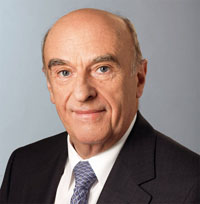Switzerland deep in cat and mouse game with Libya
 Geneva - The day came and went, but the result from the timeline Switzerland's president promised for the return of two nationals being held in Libya to the Alpine land never happened.
Geneva - The day came and went, but the result from the timeline Switzerland's president promised for the return of two nationals being held in Libya to the Alpine land never happened.
After the president, Hans-Rudolph Merz, issued an apology to Libya for the arrest of Moamer Gaddafi's son and daughter-in-law in Geneva last summer, the two Swiss businessmen being held in Tripoli were expected to be put on a plane back home by September 1.
When the Swiss government's plane dispatched to collect them was returned home with only their baggage but no "hostages," as the local media calls the two men, Libya was assumed to want to send them on a commercial flight.
But then reports this week said Tripoli was demanding some 400,000 dollars to be paid by each before they were allowed to leave, as a sort of fine.
The amount from each roughly corresponds to the bail Hannibal Gaddafi and wife had to pay in Switzerland, after they were accused of beating their domestic employees.
The Swiss businessmen were arrested just a few days after the Geneva detention, ostensibly on charges of violating the conditions of their visa, and Libya refused to make a direct connection with the arrest of the leader's children.
Trade and diplomatic relations between Bern and Tripoli rapidly deteriorated since last July, but the deal Merz signed in Libya to restore ties was supposed to rectify that, along with the apology.
However, Swiss officials have since said publicly that Libya will propose at the United Nations General Assembly in New York later this month to break up Switzerland, making the Italian-speaking region Italian, the other Latin areas French and the German part to fall under Berlin's rule.
Gaddafi had previously said Switzerland should be dismantled, touching a raw nerve in a country that recognizes its divisions and inter-regional disputes but holds onto its unity. Even before Geneva, for example, joined Switzerland in 1815, it was an "everlasting ally" of Bern for centuries.
Le Temps, the Geneva-based daily, called the Libyan idea "absurd," but its writers still went on a counter-attack.
However unlikely the Libyan proposal- which spokesmen for the UN have rejected, saying no member can so threaten another state- the entire saga has become a massive headache for the Swiss government.
The Federal Council in Bern, the executive power, is based around the Swiss "magic formula," which means the government is a collective of seven members from all the major parties, who act as one.
Merz, however, appeared to be running solo on the Libya deal, even taking personal responsibility for the apology. Earlier this week, though, he got backing from Foreign Minister Micheline Calmy-Rey, who is from Geneva, the canton at the heart of the troubles, in what appeared to be an attempt at consensus politics as usual.
However, with unfulfilled promises following an apology many saw as demeaning for Switzerland, even observers close to Merz wonder how much time he has left.
The Neue Zurcher Zeitung paper said it was not time "yet" for Merz to resign, but calls within parliament and other outlets are already saying the president - whose office rotates each year among the seven ministers - should step down.
If the cartoons in the morning papers are any indication, Merz, who is also the finance minister, has an uphill battle ahead of him.
In the colour images splashed on front pages and on the op-ed columns, the president has been portrayed as everything from a lap dog for Gaddafi to simply silly and powerless.
And that perception seems to have spread from the dailies in the French part to papers in the German-speaking regions, showing a matter on which the Swiss, or at least their cartoonists, are forming a united front. dpa